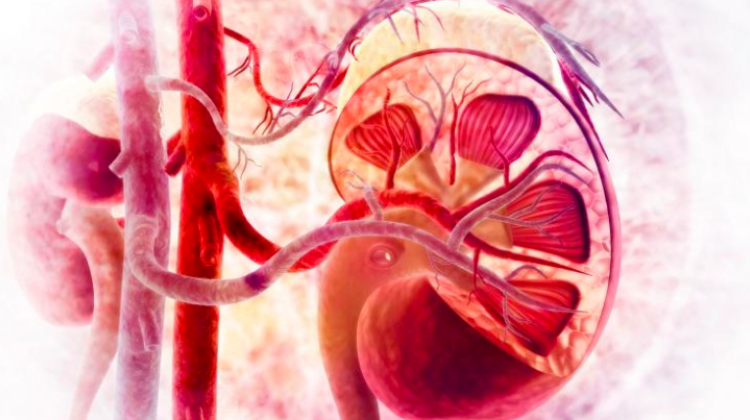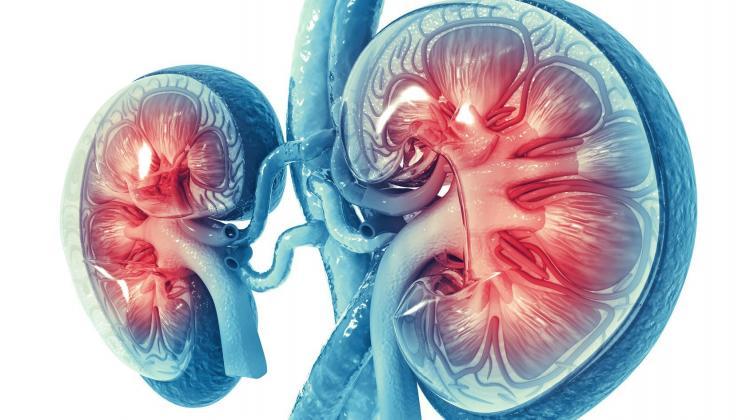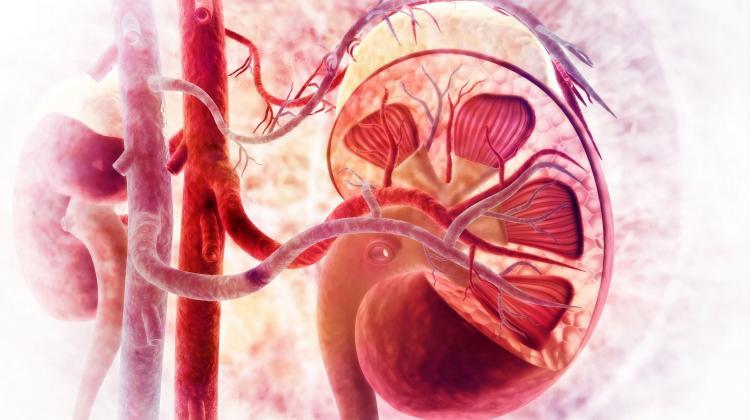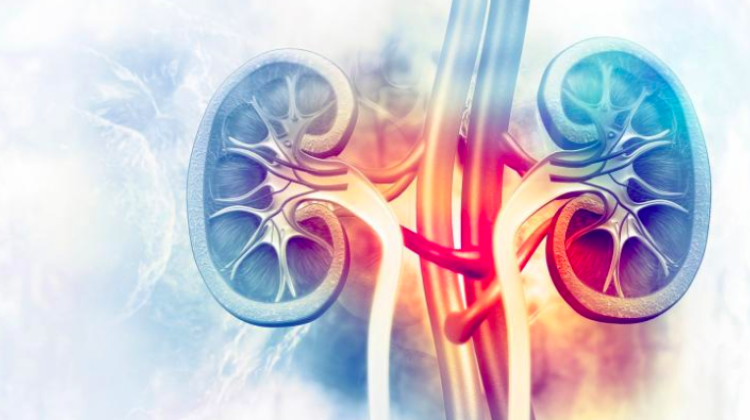Method tested by researchers from the Nicolaus Copernicus University will allow to increase the number of kidney transplants
 Photo: Fotolia
Photo: Fotolia
An innovative, low-invasive method of kidney testing, which will allow to better assess the quality of collected organs, is being tested by scientists from the Ludwik Rydygier Collegium Medicum of the Nicolaus Copernicus University. The method may contribute to an increase in the number of kidney transplants.
According to Prof. Barbara Bojko from the Collegium Medicum of the Nicolaus Copernicus University in Toruń, the method consists in inserting a needle into the organ. The needle is similar to that used in acupuncture. "It is a very thin wire covered with a substance that allows to +extract+ the compounds of interest from tissues. The technology is called solid phase microextraction (SPME) and we are currently trying to test it in medical applications" - she explains. The method allows to extract small compounds - amino acids, sugars, nucleotides, etc. from biological fluids and tissues.
Professor Bojko spent many years working in Canada at the University of Waterloo in the group of Prof. Janusz Pawliszyn - the inventor of the technology.
The research began in Canada and was conducted in an animal model. In October, researchers will begin testing this method on organs received by the A. Jurasz University Hospital in Bydgoszcz, in accordance with the approval of the Bioethical Commission.
"The method is very low invasive. The team of Prof. Zbigniew Włodarczyk, with whom we cooperate in the project, is responsible for the clinical part. Surgeons puncturing the organ know very well how to do it without doing any damage. Even a biopsy needle is 10 times thicker than the needle we use" - describes Prof. Bojko.
She adds that the tests in the hospital will be carried out on previously collected organs. "They will be performed several times during the storage of the organ +nourished+ with a special liquid, and after its implantation" - the researcher explains.
Scientists will observe the changes in the profile of compounds in the kidneys. "We hope that ultimately we will be able to select a few compounds that will help clinicians reliably answer the question about the actual biological condition of the kidney at the time of collection and (...) evaluate the changes that have occurred since the time of collection for transplantation" - says the expert.
Professor Bojko reminds that visual assessment is still the main method of assessing organ quality. "The surgeon who collects the organ evaluates its quality on a strictly visual basis" - she describes.
In her opinion, sometimes an organ that visually appears to be in a good condition actually is not, and vice versa. "Organs collected for transplantation are usually not implanted right away and the whole process from collection to implantation lasts at least a few hours, during which the quality of the organ, its physiological function, gradually decrease. After finding out about that, I immediately started looking for a foothold for our technology so that it can better support the assessment of organ quality" - she says.
The goal of researchers is to reduce the number of "bad hits" in transplants, and to increase the number of organs qualified for transplants.
"Organ shortage is enormous. Kidneys are transplanted most often, but the situation is catastrophic in the entire transplantology. Ultimately, the idea is that those organs that right now do not meet the criteria after a visual assessment, or do not qualify because, for example, the donor is at an advanced age, should be checked in terms of biochemistry, because if they work well, they can still save many lives" - believes Prof. Bojko.
"I do not know of any other research conducted this way and in this area in the world, with the exception of Canada, with which we have the pleasure to cooperate closely. Of course, after 3 years we will not be able to say everything, because the research group will be limited, but it will be a step in the right direction. The whole world is looking for ways to increase the pool of organs for transplant - in different ways. We hope that our idea will contribute to the development of knowledge about the quality of organs used in transplantology" - concludes Prof. Bojko.
PAP - Science in Poland, Tomasz Więcławski
twi/ agt/ kap/
tr. RL
Przed dodaniem komentarza prosimy o zapoznanie z Regulaminem forum serwisu Nauka w Polsce.


















